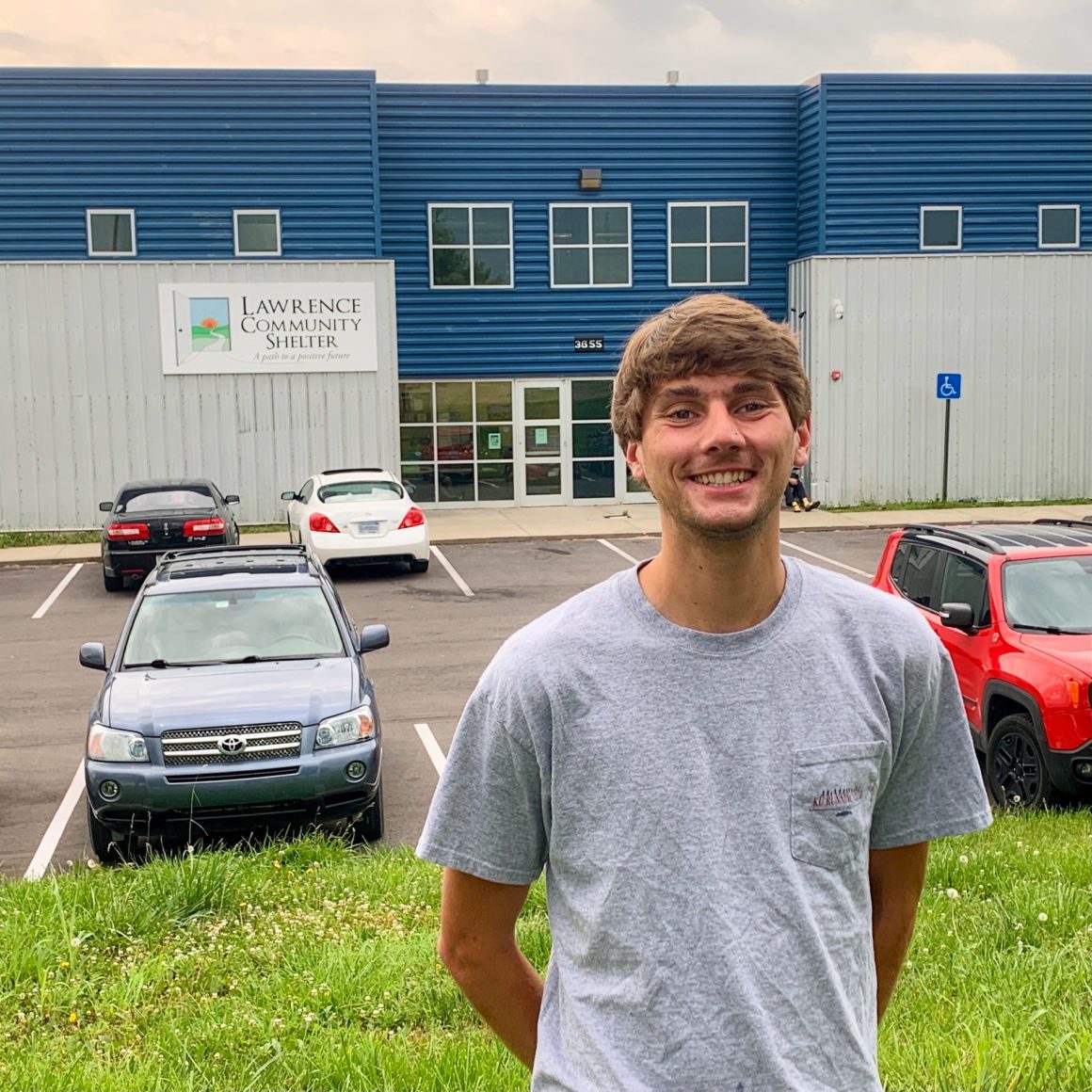By Ben Gillig, LCS Intern & KU Grad Student
When someone becomes homeless, it can be a traumatizing experience involving isolation, judgement, uncertainty, discrimination, and a lack of privacy and security. Plus, there are often significant barriers standing in the way of getting back into permanent housing such as overcrowded shelters, lost or stolen IDs and other basic legal documents, poor or nonexistent healthcare and educational access, and reliance on public transportation. After enduring these conditions for extended periods of time, many would expect someone to give into their situation and give up.
Yet after working at the Lawrence Community Shelter for nearly a year, I can say that is hardly the case. Interacting with the guests here, it is clear that these are some of the strongest individuals amongst us, and yet they are also some of the most vulnerable. They continuously show resilience in the face of their unique challenges, and do so with a positive attitude and a smile on their face.
One resident I met sustained a foot injury and had to use a wheelchair for six months. Despite being unable to use his lower body and often requiring help for everyday tasks, this resident always went out of his way to grant me a friendly greeting and an enjoyable conversation. After getting to know him more each day, I learned about his talent for art and his enjoyment of movies. His personality shining through in the midst of a less than ideal situation exemplifies the humanity of people in need which is often overlooked.
To bolster this positive attitude amongst its clients and combat the adverse effects of homelessness, the Lawrence Community Shelter uses a Housing First philosophy aimed at providing permanent housing, facilitating the greatest opportunity for behavioral health recovery and lifelong wellness. A central part of this philosophy is self-determination which plays an integral role in restoring a sense of empowerment for those moving out of homelessness.
Self-determination is intrinsically linked to the concept of Housing First; “a rights-based, client-centred approach that emphasizes client choice in terms of housing and support.” As one of the guiding principles of Housing First interventions, self-determination allows clients to select the location and type of housing they receive, as well as the timing and type of services they receive.
This theory involves ensuring three basic psychological needs which contribute to the well-being of the client;
– Autonomy: clients acting of their own volition
– Competence: clients having the ability to influence their situation
– Relatedness: giving the client a sense of belonging
– Competence: clients having the ability to influence their situation
– Relatedness: giving the client a sense of belonging
As a community shelter, it is important that the dignity and empowerment of all our clients is respected and upheld. Each has a different situation and by implementing Housing First programs, accompanied with an emphasis on self-determination, case managers, social workers, and counselors work with participants to identify their own individual goals and successes. Participants decide how much involvement and support they require from their team and they have the autonomy to make their own choices.
Just as each one of us has the freedom to dictate our own lives how we best see fit, self-determination respects the right of those in greater need to do the same. Supporting those experiencing homelessness to assert their right to autonomy in their decisions is not special treatment, it is simply granting them the same rights we all have been given.
Rather than falling into the ableist fallacy that those experiencing homelessness are doing so by choice, a program focused on self-determination meets residents where they are and treats them as human beings, with many of the same Dreams, fears, and needs we all experience.
Ultimately, self-determination is a necessary aspect of our Housing First programming because it has been shown to enhance the quality of life for clients, reducing psychological distress while improving the perceived social support of those that need it most.
Self-determination not only offers individuals experiencing homelessness greater dignity by allowing them to make decisions regarding their own life, just like the rest of us, it also provides a greater long-term solution for ending chronic homelessness because people will stay longer in places they like, want, and choose.[3] This encourages folks to be a part of the community, not just live in it.
Being at LCS, the sense of Hope is undeniable amongst its residents. Given the opportunity to be a part of a Community, to receive permanent housing, and to do so by their own volition is a life-changing experience that has the potential to restore the hearts of those who our society has far too long ignored. Housing First programs with an emphasis on self-determination make ending chronic homelessness a possibility in Douglas County and by working together as a community we can turn this possibility into a reality!


